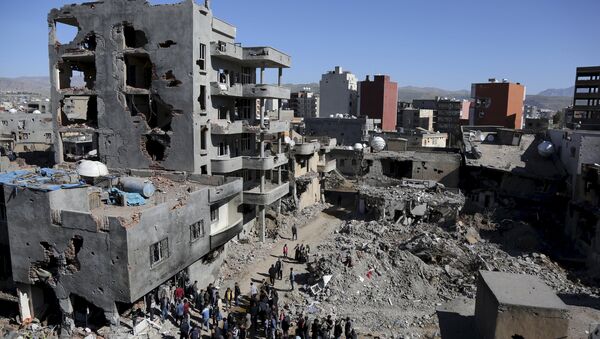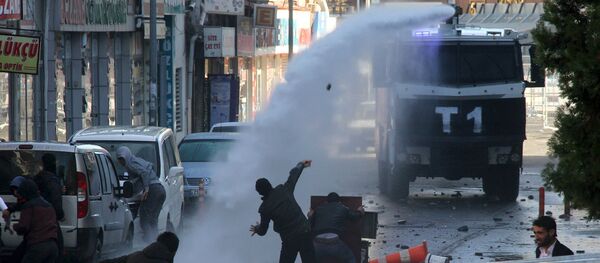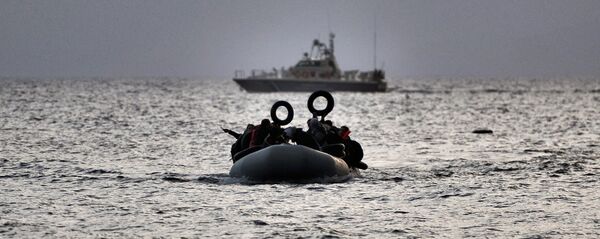"We knew it was going to be a risky kind of trip, because obviously the Turkish authorities aren’t too keen on Russia-affiliated journalists poking around the country," Whiteman tells Loud & Clear.
"So I had to enter pretending to be a journalist for another company, and just hope they didn’t do too much prying into my past."
The journalist says he traveled to Turkey to investigate various accounts of violence associated with Ankara’s security operations in cities like Diyarbakir.
"We tried to enter Sur [a district in the city of Diyarbakir], but we were barred from entering by the Turkish security forces, even though we had the relevant press accreditation that allowed us access everywhere," Whiteman says. "They threatened us when we protested."
Blocked in one city, Whiteman and his local guide drove to Cizre, along the Turkey-Syria border. What they found was a city reduced to a shell.
"The level of destruction was absolutely breathtaking," he says. "We took a left at the first petrol station you come to, and then it was devastating the view you could see. Just as far off as the eye could see, you could just see smashed houses, and this was a very densely populated area.
"You had thousands of local Kurds living in this area before."
The attacks on Cizre began December 2015, with the implementation of a 24-hour curfew.
"Heavy artillery and tanks had been used, and when you’re there you can see this. A large amount of the buildings have fallen down. They’re just piles of rubble," Whiteman says.
"The local defense forces, the Kurds, who tried to fight back the Turks, they had made tunnels through the houses. They smashed holes in the walls," he adds. "Everything had massive, massive craters and huge chunks knocked out of them. There were burn marks all up the walls.
"It looked more like Aleppo or Hama than anything you would expect to see in Turkey, a NATO ally."
While the government of embattled Turkish leader Erdogan insists that its security operations are necessary to root out aggressive Kurdish militants, Whiteman places the blame on the president for initiating the violence.
"No one wanted this level of fighting or destruction to be brought upon their homes," he says.
"I was in Diyarbakir back in November, when the pro-Kurdish human rights lawyer Tahir Elci was shot. Immediately after that, within an hour of him being shot, President Erdogan came out and said that the PKK had done it."
"He said this before any kind of criminal investigation could have been into the killing, and then immediately, the crackdown was stepped up."
Erdogan’s military operations in Cizre increasingly have less to do with Turkish national security, and more to do with the leader’s own hubris.
"He wants to be remembered, and so the thought now is that he wants to be remembered as the man who once and for all ended the Kurdish-Turkish conflict," Whiteman says. "And he’s obviously doing it at whatever cost. The level of the violence and the destruction was absolutely indiscriminate, from what I saw there."
After all he’s seen, Whiteman has initiated a petition calling for a thorough investigation into Turkey’s actions by the United Nations Human Rights Council.
"This is a very serious thing which is going on here that a large percentage of the mainstream media is choosing to turn their backs on," he says. "So we thought that by doing a petition, this was the best way to, A, draw international public attention to the plight of the Kurdish people in Turkey, and, B, to try and encourage, as much as we can, an investigation into this civilian loss of life."




